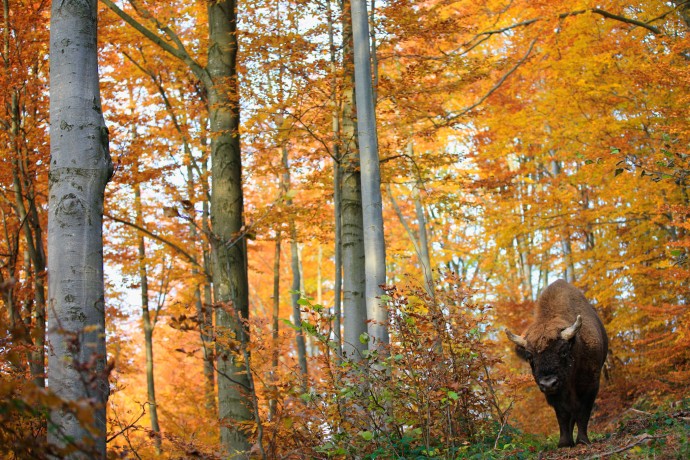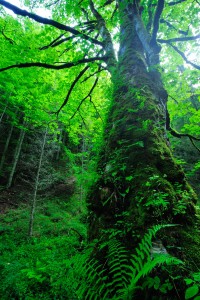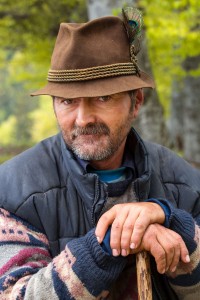Rewilding Europe started its initiative in 2011 with a substantial grant from the Dutch Postcode Lottery for the project “Green Treasures of Europe”. This special project grant was received from the Dutch Postcode Lottery through ARK Nature, one of the initiating partners of Rewilding Europe. After four years of working in partnership with ARK Nature (2011–2014), the project was recently officially approved and closed by the Dutch Postcode Lottery.

“Green Treasures of Europe” originates from a collaboration of WWF Netherlands, FREE Nature, Eurosite and ARK Nature. At the time of application for this project (September 2010) Rewilding Europe did not exist yet. The Dutch Postcode Lottery grant of 3.1 million euro to ARK Nature for “Green Treasures of Europe” gave a huge push to our initiative.
Soon after, the four initiating partners – apart from WWF Netherlands and ARK Nature also Wild Wonders of Europe and Conservation Capital – recommended to establish a separate legal entity for the initiative. Rewilding Europe became a foundation in June 2011 with its own Board of Directors – and a Supervisory Board later in 2012. In 2012, Rewilding Europe applied to become a beneficiary of the Dutch Postcode Lottery itself. There was huge excitement when this happened in February 2013, providing another strong boost to our initiative. Rewilding Europe is extremely grateful to the Dutch Postcode Lottery for its generous support, which has enabled us to grow to what we are now, to establish additional partnerships and to diversify our income with various new partners.

“Green Treasures of Europe” has delivered a large number of tangible and meaningful rewilding results, both in general and in the rewilding areas. These results are all reported in our Annual Reviews, numerous news items on our website and in our publications. The main general results are:
- Rewilding has become a new term in European conservation, and Rewilding Europe has been able to develop itself as the main architect and driver of this approach, and start pioneering this in at first five, but currently eight different landscapes in Europe.
- We were able to launch a number of ground breaking initiatives, that serve as catalysts for the rewilding process, like the European Wildlife Bank, the European Rewilding Network and Rewilding Europe Capital.
- Strategic and practical partnerships have been set up with a number of key European organisations involved in wildlife conservation, communication, rewilding and the business sector.
- We have promoted European wildlife as a key driver for rewilding, rehabilitation of ecological processes and enterprise development. Not only with a landmark publication on wildlife comeback in Europe (produced by renown and independent scientific institutions) but also with many tangible actions on the ground.
- In particular the larger species such as European bison, European wild horse and the Tauros received a lot of attention – both in publications as in practice as in natural grazing pilots.
- A strong communication effort with a lot of outreach to large audiences, in particular around animal releases, major publications and WILD1o in Spain in 2013. Rewilding Europe received major media attention in international magazines and national press and media, with an estimated outreach of more than 150 million people in total so far.
- Web-page views grown by 183%, arriving at 39,000 per month, while number of Facebook likes grown by 50% to 15,000 by 31 December 2014.

In the rewilding areas across Europe, we made a lot of progress with all of our local partners, of course not without challenges – pioneering a new approach starts in the minds of people and takes time. Nevertheless there are numerous smaller and larger steps made in the rewilding, enterprise development and communication endeavours in the rewilding areas. Here is a short summary:
- 2 bison translocations to Southern and Eastern Carpathians, including 20 animals from 4 different countries;
- 20,000 hectares secured for rewilding through user rights, in 8 sites in 4 countries;
- 6 feasibility studies done on wildlife reintroductions covering 5 species: red deer, roe deer, beaver, European bison and Iberian ibex;
- cooperation set up with 3 hunting concession holders in 2 rewilding areas (Velebit and Rhodope Mountains) to support wildlife comeback;
- 5 Tauros breeding sites operational (2 in Western Iberia, 2 in Velebit Mountains, 1 in The Netherlands), now involving 6 different ancient breeds to breed-back the aurochs;
- 7 European Wildlife Bank contracts signed with landowners in 4 rewilding areas;
- cooperation with 14 zoos from 7 European countries on bison translocations in 2014 and 2015;
- 35 members in the European Rewilding Network, covering 18 countries and a total surface of just over 1,9 million hectares;
- 13 rewilding enterprises supported across 5 different rewilding areas, covering 4 different business sectors;
- 30+ new jobs created through Rewilding Europe Capital, with investees set to generate 25,000 euros of levies per annum, and leverage the protection of an estimated 20,000 hectares of wild landscapes;
- 10 wildlife guides trained in the Southern Carpathians, while 16 people from local communities employed and involved in rewilding actions on the ground, such as herd keeping, monitoring, patrolling;
- the bison release in Romania reaches an estimated 95 million people through different types of media throughout Europe and other parts of the world.
Rewilding Europe is very happy with the approval of the project “Green Treasures of Europe” and thanks the Dutch Postcode Lottery for its trust and support. We are also very thankful to ARK Nature for the fruitful cooperation. We are looking forward to continue working with both the Dutch Postcode Lottery and ARK Nature for the years to come, in making Europe a Wilder Place!
